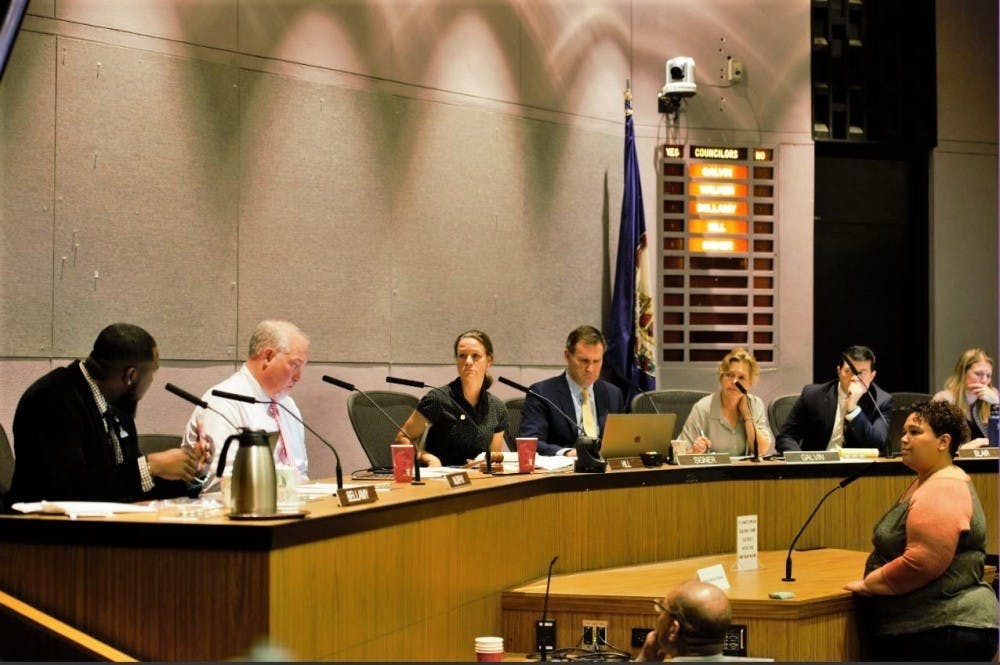The affordable housing crisis in Charlottesville is demonstrative of a serious contradiction among liberal cities in America, whose officials always pay lip service to racial equity but hardly ever deliver. In Charlottesville, exclusionary zoning laws, density requirements, unaffordability and irresponsible economic planning have made it nearly impossible for middle class and low-income residents to find affordable housing. While many may defend existing laws as necessary to preserve the character of particular neighborhoods within the city, a deeper dive into the history of these ordinances reveals the racialized nature of Charlottesville’s housing market that continues to segregate the community.
Before analyzing the regulatory mess that undergirds this crisis, it is important to acknowledge how unaffordability and unavailability have steepened housing inequality in Charlottesville for years. Housing has become so unaffordable that Charlottesville residents have resorted to writing letters to sellers pleading for affordable prices. According to estimates from April 2018, housing is so scarce that the average home spends just 37 days on the market before going under contract, and many houses sell before even going on the market. Some people are so eager to buy a home that they won’t hesitate to attach escalation clauses — agreements to pay a certain amount more than the next highest offer — to their bids.
Exclusionary zoning ordinances have also become a major obstacle for low-income families trying to find affordable housing. Charlottesville explicitly bans duplexes, townhouses and other multi-family homes in many neighborhoods which appears to cater to wealthier residents. According to the city’s restrictive zoning ordinance, single-family homes are established “to provide and protect quiet, low-density residential areas wherein the predominant pattern of residential development is the single-family dwelling.” Within each particular zone, there are specific height, land and yard requirements that builders must uphold to abide by city law. These requirements, which appear to be unbiased at first glance, have consistently perpetuated housing inequality in Charlottesville — a problem that is unavoidably linked to race.
The City’s Planning Commission, dedicated to alleviating Charlottesville’s housing crisis, has recently undergone measures to uncover the racist history of Charlottesville’s zoning ordinances. Lyle Solla-Yates, a member of Charlottesville’s City Planning Commission, showed The Daily Progress a hand drawn map of the City’s zoning laws from 1929, where “Black shading and white cross-hatches marked African-American residential neighborhoods, such as 10th and Page, as the only areas where commercial and industrial development would be allowed, leaving open land untouched.” According to Solla-Yates, racially biased zoning ordinances “told people, ‘if you want to build a business, you either have to build it in an existing commercial area, or you can displace an African-American family from their home.’”
Neighborhood associations have played a major role in racializing Charlottesville’s housing market since the early 1900s. Intent on preserving the character, peacefulness and racial homogeneity of single-family communities, the City’s 32 neighborhood associations have fought for decades against campaigns to uplift density requirements and restrictive zoning ordinances. In the early 20th century, the City passed laws allowing racially restrictive covenants when selling a house, forbidding racial mixing in wealthier neighborhoods and designating poorer and historically African-American neighborhoods as development areas that are vulnerable to commercial disruption.
Moving forward, the City must amend density requirements, address unaffordability and change zoning laws to ensure greater housing availability to its residents. The City Planning Commission has drafted several new city maps in an effort to convince the City Council to change its restrictive zoning laws, but the City Council has thus far failed to take any meaningful action to address the crisis. In fact, the current City Council has actively prohibited developers from building more mixed-use housing.
Charlottesville can also look to the city of Minneapolis, Minn. as a model for housing reform, seeing as it has become the first city in the U.S. to completely abolish single-family zoning and stop requiring parking minimums for new developments. This type of modeling allows for low- and middle-income residents to live in neighborhoods that are typically occupied by wealthier, more racially homogenous communities. Not only does this help create new housing for low-income families, but it can help stimulate the housing market in expensive areas, lowering housing prices for all socioeconomic classes, which could also help address the gentrification crisis.
While these solutions may seem radical, the have the potential to garner support from across the ideological spectrum. A free market approach to zoning reform would allow developers to construct more affordable housing without the burden of restrictive housing codes, while also addressing serious racial inequities in Charlottesville. However, nothing can be done unless City Council finally reforms the zoning code to pave the way for a better and more equitable community.
The Cavalier Daily Editorial Board is composed of the Executive Editor, the Editor-in-Chief, the two Opinion Editors and their Senior Associate. The board can be reached at eb@cavalierdaily.com.







